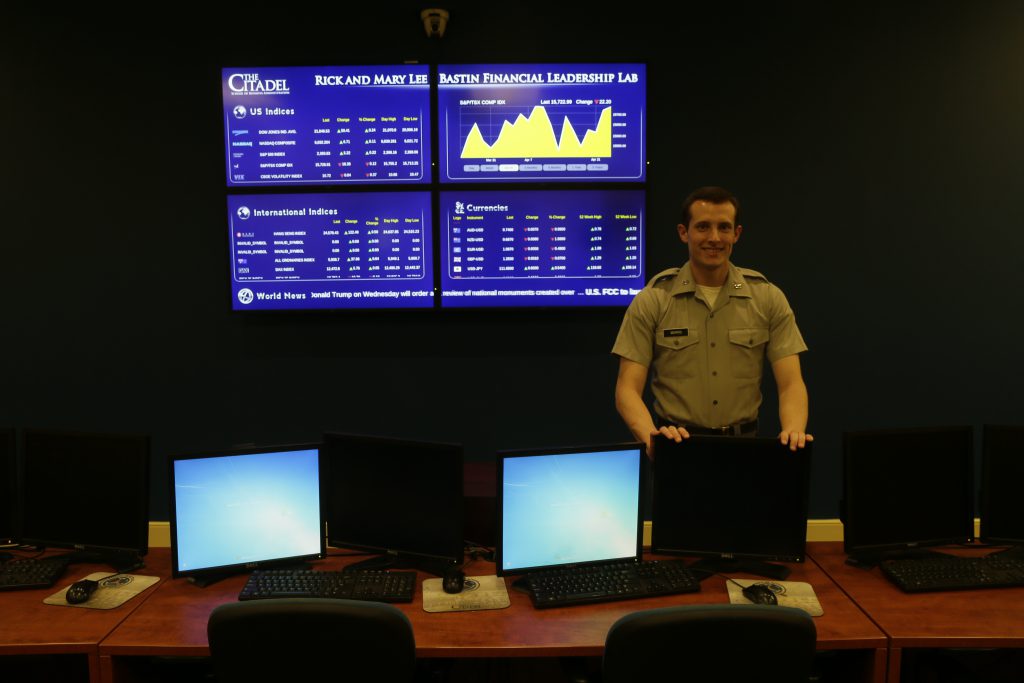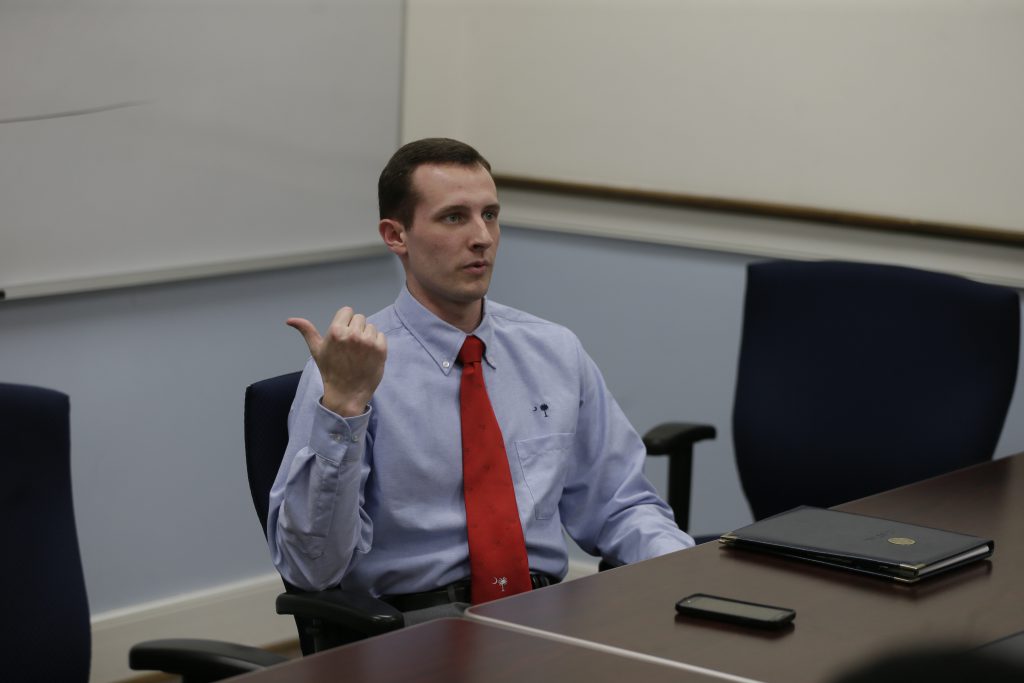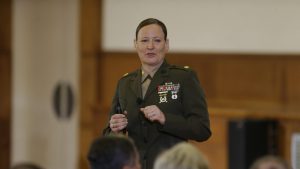By Cadet Edwin Morris
From my desk in an office I shared with another summer intern in Dulles, Virginia, I generated a list of banks from the Bloomberg terminal that would participate in an upcoming $50 million syndicated loan. It was the first step in a long process that would span the next few weeks as I worked with the treasury and finance group at the Cooperative Finance Corporation. The Cooperative Finance Corporation, CFC for short, is a nonprofit company created to raise money at the lowest possible cost for electric cooperatives. Electric cooperatives are nonprofit electric utilities, which means their mission is to supply reliable, affordable electricity rather than making a profit.
 Since CFC is member-owned, electric companies can obtain funding at a lower interest rate than through a traditional lender. With bond issuing, commercial paper and syndication loans, CFC provides capital for electric plant construction and utility operations across the country. During my summer internship with CFC, I worked on multimillion-dollar deals. The large sums combined with tight profit margins made every deal challenging and exciting.
Since CFC is member-owned, electric companies can obtain funding at a lower interest rate than through a traditional lender. With bond issuing, commercial paper and syndication loans, CFC provides capital for electric plant construction and utility operations across the country. During my summer internship with CFC, I worked on multimillion-dollar deals. The large sums combined with tight profit margins made every deal challenging and exciting.
At 8:08 a.m. on an ordinary Wednesday, I was reviewing an electric cooperative’s financial statements to update its risk analysis. Each statement took about 15 to 20 minutes to review, but because of time-management habits ingrained in me from my time at The Citadel, I was just finishing the eight accounts that had been assigned to me the afternoon before. My supervisor walked in as I was finishing the last one. The trading desk downstairs was about to issue some new commercial paper, she said, and since I had finished up early, she invited me to watch the markets open. Commercial paper is a way of raising capital for short-term use. It is cheaper to raise than stocks and bonds because it does not have to be registered with the Securities and Exchange Commission.
At the trading desk, I learned that the traders needed to raise a large sum of money in a short period of time for one of the loans upstairs. When 9:30 a.m. rolled around, I watched in fascination as calls came in and the paper sold on the open markets. While I was there, the traders allowed me to participate in the operations, which included updating their clients’ accounts before the markets opened. I also had the opportunity to answer phone calls and place orders for commercial paper. This opportunity gave me a firsthand experience at the trading desk rather than just observing the process.

The day at the trading desk was the highlight of my summer internship, and it was an experience I would have missed had I not managed my time well. As the summer at CFC progressed, I realized what an important advantage cadets have. Accountability—showing up on time to class, staying organized with a large class agenda and having a schedule that keeps me busy— prepared me to succeed at my internship. With the different responsibilities and the demands of being a servant leader, I am prepared to relate to others in an organization. I got along with the security guards at the entrance, and I was probably the only person in the organization who knew what sitting guard was like. Time management and attention to detail allow me to work productively and efficiently. Instead of goofing off, I used my time to plan accordingly. My experiences at The Citadel have helped me transfer classroom learning to the business world.

 Resilience in the Face of Adversity
Resilience in the Face of Adversity The Promise of Something Great
The Promise of Something Great